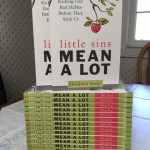
Hitchens, July 2010 / Photo by John Huba
Chirstopher Hitchens, in the midsts of a poison cure which would befuddle reason and leave most of us whimpering in our safe corners, manages, still to write with great beauty, humor and power. He writes with address.
The notorious stage theory of Elisabeth Kübler-Ross, whereby one progresses from denial to rage through bargaining to depression and the eventual bliss of “acceptance,” hasn’t so far had much application in my case. In one way, I suppose, I have been “in denial” for some time, knowingly burning the candle at both ends and finding that it often gives a lovely light. But for precisely that reason, I can’t see myself smiting my brow with shock or hear myself whining about how it’s all so unfair: I have been taunting the Reaper into taking a free scythe in my direction and have now succumbed to something so predictable and banal that it bores even me. Rage would be beside the point for the same reason. Instead, I am badly oppressed by a gnawing sense of waste. I had real plans for my next decade and felt I’d worked hard enough to earn it. Will I really not live to see my children married? To watch the World Trade Center rise again? To read—if not indeed write—the obituaries of elderly villains like Henry Kissinger and Joseph Ratzinger? But I understand this sort of non-thinking for what it is: sentimentality and self-pity.
Doubtless, some will take me to task for including Hitchens’ self-indulgent lines of spite, but I figure he and God can duke that out. We bring our full selves into our sicknesses as well as our joys, so there is no reason to think Hitchens would suddenly become saintly. Some do, of course, find their “come to Jesus” moment in the chemo infusion bag which–from a new perspective–seems too flimsy a thing to entrust with either life or death, but I wouldn’t expect it of Hitchens; he enjoys his atheism much too much for that. He loves it so much that he doesn’t even subject it to his usual withering intellectual rigor. Hitchens throws his weak punch at the pope as a means of demonstrating to us and to himself that he is still in the game, still faithful to his own lights and hearty in combat.
I frankly would be worried about him, had he written anything differently.
What is interesting in the piece, however, is how well Hitchens’ demonstrates a powerful-if-unofficial (and yes, saintly) virtue of willingness that he might himself dismiss.
Christians pray “Thy Will Be Done” but that is a surrender often uttered while the heart is still busy writing treaties. I had an Evangelical once email me a convoluted exposition justifying the use of artificial birth control because “God can do anything, and if God really wants us to get pregnant, we will, even with spermicides and barriers.”
Well, of course. That happens all the time. Layers of asphalt cannot prevent green shoots of life from breaking through even the most traveled road. But the argument is a great example of the surrender-with-treaty we Christians often offer. In truth, though, surrender comes with an open door, not a barricade, or it is not surrender, at all.
Surrender, in fact, is not the negative, “I give up,” but the positive, “I am willing.” When willingness enters into one’s head and heart, every possibility comes rushing to the fore; there is room for miracles.
What Hitchens demonstrates here, in his gorgeous prose which is so full of the force of life, is the sort of open-handed willingness which too-often escapes us but is the essence of surrender. Because Hitchens is willing–because he is more opened than closed–it would not surprise me to see him still here to do some of those things he writes of. He may not have ascended Elisabeth Kübler-Ross’s steps to let his curious mind and open heart explore his new vista, but he has double-timed his way to wisdom.
Whether the wisdom will be “made perfect,” in Christ we may never know. Hitchens is a stubborn cuss, and God knows him well, but the rest of us do not. And no one knows what happens in the deepest recesses of the human heart and soul, in those infinitesimal moments wherein we are still half-here and mostly gone.
Hitchens would hate to know that he is giving deeply Christian instruction, here. That confounding Holy Spirit, again; always using the most surprising of tools, to teach.
RELATED UPDATE:
Margaret Cabaniss at Inside Catholic takes a look at a must-read exposition of how urgently we need to explore our ideas of medicine, life and death.
UPDATE II:
An agnostic friend just emailed me that Hitchens “is not a good person at all.” I don’t know that. I know he is a controversial person who dares to think for himself and even be publicly wrong and stubborn, which is something rare, these days, among intellectuals. And I like him because he dares me not to! :-)
Others writing:
Reason Magazine
Hugh Hewitt
Althouse
Da Tech Guy











